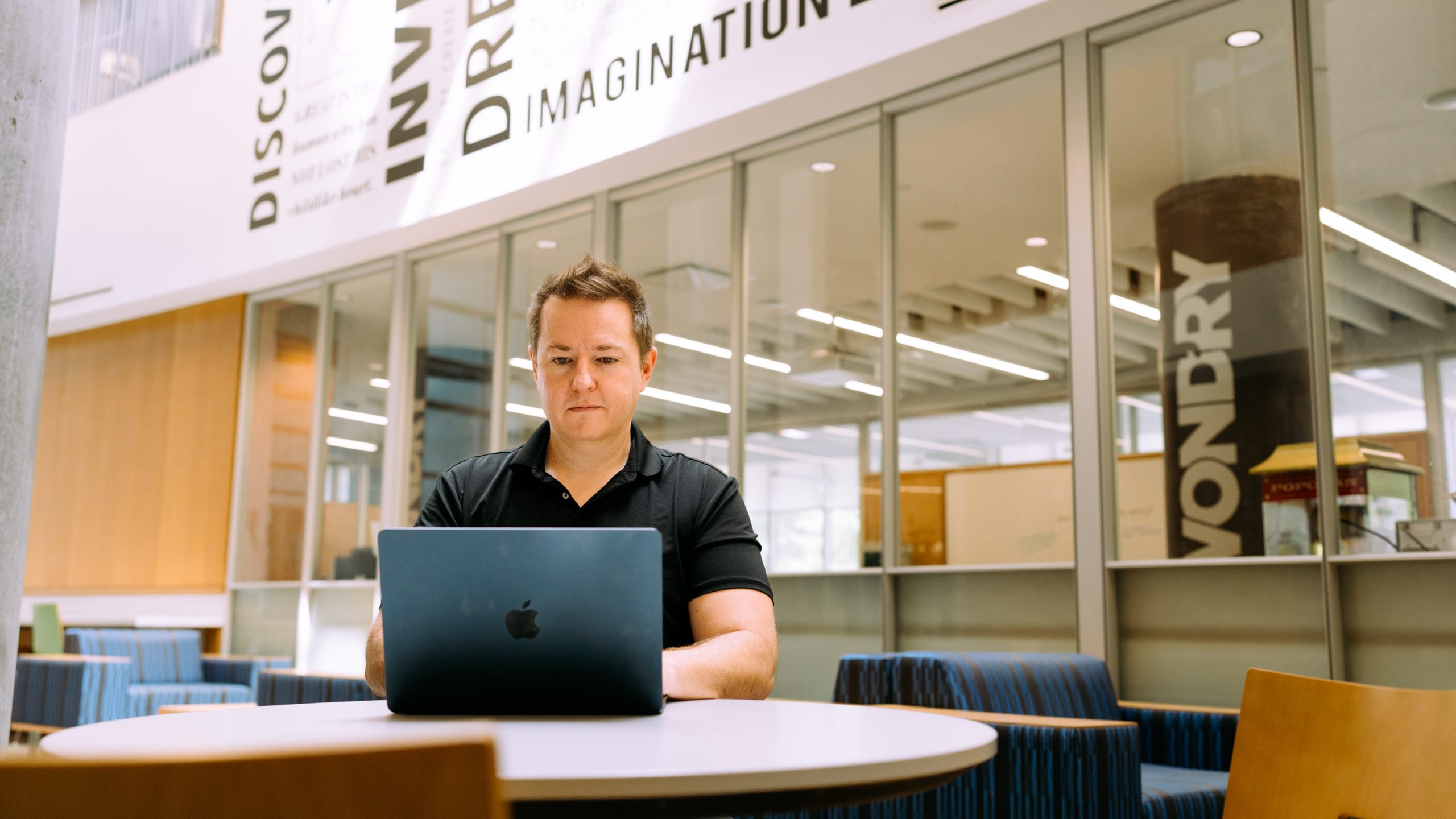In just over a year, generative AI has emerged from a niche curiosity to a driving force in many of Vanderbilt’s classrooms.
The Office of Faculty Affairs and Professional Education has launched several resources and programs related to generative AI, including an updated academic affairs policy, an online resource hub, a new teaching award and a pilot program for a secure, proprietary alternative to ChatGPT. These updates reflect AI becoming an established tool in classrooms and labs across the campus and give faculty ways to help equip students to best use generative AI for new lines of inquiry and scholarship.
AI in the classroom
One reason for generative AI’s rapid rise in Vanderbilt classrooms is its impact on students’ future job prospects. That’s why Kristen Tompkins, senior lecturer of human and organizational development, made generative AI central to her senior Capstone students’ fall Map the System projects, which partners students with local organizations and businesses and prepares students to understand and resolve complex social-ecological challenges.
The implications of generative AI are also ethical said Jesse Spencer-Smith, professor of the practice of computer science and chief data scientist in the Data Science Institute.
“Students are going to use generative AI in their work, and it is important to teach responsible and ethical use of these models,” Spencer-Smith said.
Vanderbilt has big plans for leading the way in generative AI in 2024.
“This is an exciting time for our faculty as they pursue Provost Raver’s ambitious vision for Vanderbilt’s leadership in generative AI discovery and education,” said Tracey George, vice provost for faculty affairs and professional education. “The Office of Faculty Affairs and Professional education is committed to supporting faculty from across the university as they explore, implement and innovate with these tools.”
Updated policy on generative AI use
Effective January 2024, the university has an updated policy on generative AI use in teaching and learning. The policy was introduced in fall 2023 to promote open dialogue among faculty and students about how generative AI may, and may not, be used in their courses. The policy applies to all schools and colleges and to all courses. Students are encouraged to read the policy, which has been shared with all faculty.
New resource hub
A new generative AI resource hub, organized and maintained by the Institute for the Advancement of Higher Education, will serve as a “one-stop shop” for Vanderbilt faculty, staff and students.
“With this hub, we will help eliminate confusion around where generative AI resources and information live in the Vanderbilt ecosystem, while also increasing visibility of all that we are doing in this space,” said Mallika Vinekar, assistant provost for professional education and director of AdvancED’s Office of Learning Innovation. “I encourage faculty, staff and students to bookmark the page and make it their first stop whenever they have a question or need concerning generative AI.”
New teaching award
AdvancED announced the creation of the annual Innovation in Teaching Award, which will honor one full-time faculty member for excellence and innovation in using generative AI in the classroom. Nominations are open for the inaugural award, which will be given during the spring 2024 faculty assembly.
Looking ahead
Jules White, senior advisor to the chancellor for generative AI in education and enterprise solutions, is leading an effort to address data security for Vanderbilt researchers. He believes that the university is just getting started in its AI efforts.
“One of the great hurdles in leveraging this technology revolves around data security and proprietary information. We simply cannot allow our intellectual property to integrate into the publicly available data sets of LLM platforms like ChatGPT,” White said. “We are piloting a proprietary LLM that will eliminate that concern and allow us to further integrate generative AI into our research, teaching and learning.”
Eighteen faculty and staff are engaged in the pilot program, with 30 to be added this month. The development team is working to expand access to more areas of the university. A campus-wide rollout of the platform is tentatively planned for fall 2024, but faculty and research fellows who have an immediate need for the tools are encouraged to submit a request through the ChatGPT Pilot Request form.
